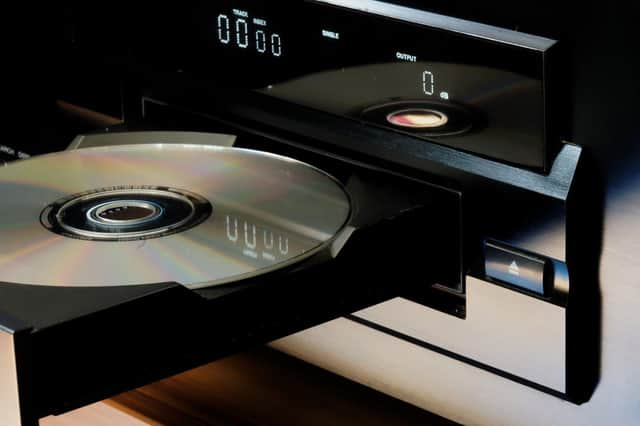Organise your music collection while you’re in lockdown


Organising your music collection is one of those jobs you always think you’ll get around to, especially when you’ve just bought a new computer. But the prospect of actually doing it ultimately seems more trouble than it’s worth.
However, with nothing better to do and the tedium threshold lowered, you might find that it is after all quite therapeutic.
Advertisement
Hide AdAdvertisement
Hide AdMusic these days takes only three forms: the albums and songs already on your computer or phone, those you stream from Spotify or a similar service, and the CDs, LPs and cassettes still on your bookshelves or in the attic.
Those on tape or vinyl are the most difficult to corral, since you need to run a cable from an analogue player into your computer and transfer them in real-time. It’s not difficult technically but it’s obviously time-consuming, and the process of tagging them in order for your computer to file them by title and artist, is seldom worth the effort. What’s more, the sound quality is likely to suffer in the transfer, especially if you’re working from tape.
The best rule of thumb is to transfer only those tracks whose rarity means you can’t find them online. That ought to filter out most of them.
CDs are easier because you can “rip” them directly into any PC with an optical drive, in a few seconds flat and automatically assign the title, album and artist labels. Do make sure though that your software has done the last part accurately, because you’ll never find them otherwise.
Advertisement
Hide AdAdvertisement
Hide AdThe tags are what iTunes and every other music library uses to compile your collection. In the early days of CD ripping, when tagging was often done manually, they tended to be applied casually, with the result that to this day many of us have music libraries full of duplicate and missing files.
Windows Media Player and iTunes can help you root these out but for a more forensic deep-clean you can try one of the several free music tools available online. Among the most popular are DupeGuru for Macs, AllDup for Windows and Similarity for either platform. All will scan your hard disk for files and flag up tracks which appear to be duplicated in different folders. Those tracks with missing or incorrect tags can be corrected with other free tools like MusicBrainz Picard and MP3Tag, both of which can attempt to find the correct labels for you. Using these apps you can also add missing album covers and other artwork, which will show up on your phone.
But with so much music now on streaming platforms rather than physical hard disks, all that is still only half the story. If you have a Spotify account you can, however, use it as a single player for all your music, by adding folders on your PC as a source within the Spotify app. Once you flick the switch to show local files, your music folders will be scanned automatically, and you can add others as necessary. However, Windows Media Audio files and those in iTunes lossless format – which have WMA and M4A extensions, respectively – are not supported.
Once you’ve done that, you can also play the local files through Spotify on your phone, but only if you have a paid account and you’re using the same wi-fi network as your PC.
Advertisement
Hide AdAdvertisement
Hide AdOf course, none of this is strictly necessary to enjoy your music. But if you were the sort of person who liked to alphabetise the albums on your shelf, you’ll find this the next best thing.
Editor’s note: first and foremost - and rarely have I written down these words with more sincerity - I hope this finds you well.
Almost certainly you are here because you value the quality and the integrity of the journalism produced by The Yorkshire Post’s journalists - almost all of which live alongside you in Yorkshire, spending the wages they earn with Yorkshire businesses - who last year took this title to the industry watchdog’s Most Trusted Newspaper in Britain accolade.
And that is why I must make an urgent request of you: as advertising revenue declines, your support becomes evermore crucial to the maintenance of the journalistic standards expected of The Yorkshire Post. If you can, safely, please buy a paper or take up a subscription. We want to continue to make you proud of Yorkshire’s National Newspaper but we are going to need your help.
Advertisement
Hide AdAdvertisement
Hide AdPostal subscription copies can be ordered by calling 0330 4030066 or by emailing [email protected]. Vouchers, to be exchanged at retail sales outlets - our newsagents need you, too - can be subscribed to by contacting subscriptions on 0330 1235950 or by visiting www.localsubsplus.co.uk where you should select The Yorkshire Post from the list of titles available.
If you want to help right now, download our tablet app from the App / Play Stores. Every contribution you make helps to provide this county with the best regional journalism in the country.
Sincerely. Thank you.
James Mitchinson, Editor
Comment Guidelines
National World encourages reader discussion on our stories. User feedback, insights and back-and-forth exchanges add a rich layer of context to reporting. Please review our Community Guidelines before commenting.